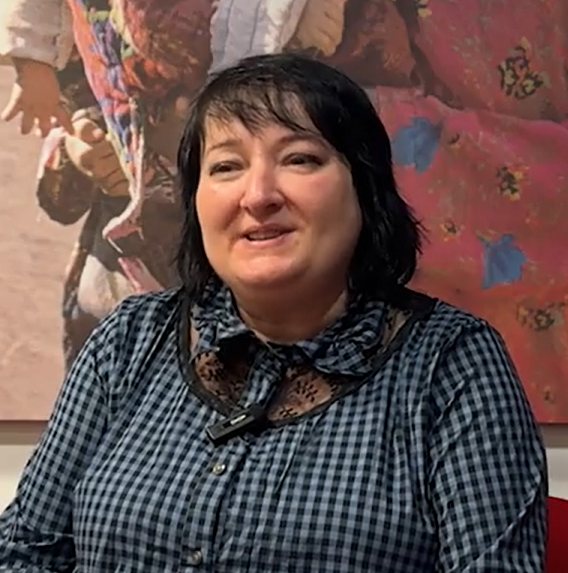
Galina Girkina, Executive Director of the Alliance for Reproductive Health in Kyrgyzstan.
Articles by Galina Girkina

"Who is going to create the democratic society that we need? Young people!"
Below is a transcript of a video interview with Galina Girkina about youth participation in the Kyrgyzstan Member Association. Young people play a central role in the fight for sexual and reproductive health and rights in the country. Because of the political context, our research shows that 50% of young people under 25 are dying to leave Kyrgyzstan because they see no future for themselves in their own country. I think it's the political context That explains it. Because young people know they're not going to find their way in government organizations. They're not going to be able to make a life there, so they seek a path in the NGOs.That is open to them. So for instance, our Alliance (Alliance for Reproductive Health in Kyrgyzstan) in that respect is probably typical. In our structure 60-70% of the people running the organization are under the age of 25. Four out of seven of our board are that young. In the organization as a whole, there are so many young people. It's also a result of our work in previous years because we always made sure that whether or not we had financing for it, because we didn't need financing, that we were training the young. Providing training for things like peer education for cascade learning, training for peer education for Training of Trainers, and part of what this is about is young people wanting to stay in the organization. They were organizing the training themselves. They were organizing it to a very high level, very high quality. So we have this sort of conveyor belt of young people coming through, some of whom worked in the organization, others went on to work in other places, supporting from outside. But it's the youth itself that has been the driving force behind this. Another important thing, and I'm probably not revealing any great secret, young people, they need to feel at home in their organization. They need to feel that they are welcome. They need to feel that they are respected in the organization. That is very important. Now, there's the other side of the coin. Young people need recognition, and this is something that doesn't require any money, any finance. For instance, we write to their parents to tell them, "You've brought up this fine young person who has done so much for our organization." We find little presents to give them so that they understand how much we appreciate them. We write to their university or place of work to tell them how much we value them. This creates an image for a young person. It enhances their authority. It gives them a certain solidity in their own society. And of course, membership of our Alliance, this is a mark of quality. So if someone, say, goes for a work interview or perhaps an interview for some sort of training or study, and they say, "I am a member of the Alliance." "I work for the Alliance." The response is, "Oh! We know all about the Alliance! And we know how high quality the training they provide is. So if you're from them, we want you here” We're training the politicians of the future, the decision makers of the future. Who is going to create the democratic society that we need? It is these young people! They're the future!

Shaping Kyrgyzstan's Future: the Alliance for Reproductive Health
In the heart of Kyrgyzstan, a remarkable organization is making a difference in the lives of young people. Led by Executive Director Galina Girkina, the Alliance for Reproductive Health is at the forefront of the fight for sexual and reproductive health and rights (SRHR). Join us as we explore their inspiring work, the challenges they face, and the impact they're making on their community. When was your Member Association founded? We were founded in 2001, so we’re now more than 20 years old. And we started in Kyrgyzstan. Issyk kul, where the big lake is. And then we moved to the capital, and now we have become a big organization with 7 sections geographically. How would you describe the evolution of your country over the past 20 years? Over 20 years the political context has changed seriously. At the start, when we were first founded, we were a young country. We had gained our freedom. It was such a moment of uplift. There we were with all our democratic development prospects, and NGO's had government support, and now that has changed. Can you elaborate on the current situation? Now there's a new wave of repressive politicians, repressive policies, and we are now faced with a serious situation. We are having to struggle for our future at all levels, and in all respects. Now at this very moment in Kyrgyzstan a court case is underway, where they are suing human rights activists. The same kind of people who supported independence and pushed for it. So now all kinds of organizations, for instance, working with LGBTQ people, they are now closing or having to transform themselves. Very serious things are underway.









